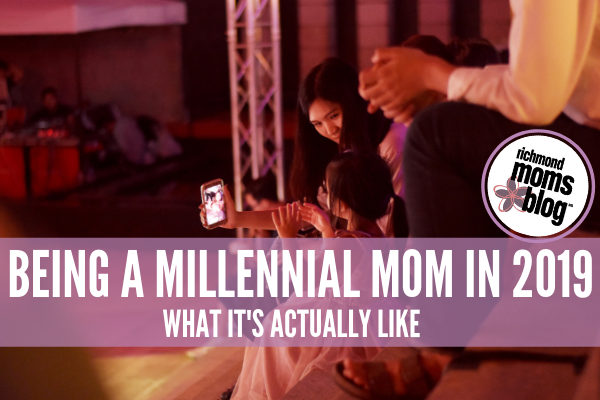
A Whole New World…
Growing up, I hated hearing my parents’ comparison between my generation and theirs. The answer to my complaints about my teenage angst were continuously met with, “When I was young…,” “Your generation…,” and the despised, “You have it easy,” response.
Now that I’m a parent in 2017, I can safely say I have it worse than my parents. Parenting in the 1980s and 90s was a different ballgame. No, my parents didn’t have daily access to my grades nor were they able to check my location on Find My Friends. They weren’t able to test my excuse for skipping curfew when I “couldn’t find a payphone” to explain earlier.
Parents today have more access to their kids. For all intents and purposes, we can monitor every activity, every friendship, and prevent any mistake our children could make. My parents had to settle for my word when I told them where I was, who I was with, and how I got the grades I got. It’s WAY better to know, right?
Now that I have survived parenting at every stage and my children are almost out on their own, I have the benefit of hindsight. And I can share a secret with you: it’s not a good thing to have all this access. Because with access to every aspect of our children’s lives comes increased access for them, too—to the world outside the mini world we create for them.
How do parents today balance a child’s need to learn independence while keeping them safe in a world so consumed by social media? How do we allow them the benefits of social media with the need to protect them from predators, cyberbullying, and lower self-esteem? Let’s break it down.
Benefits of Social Media for Children and Teens
Ok folks, whether we like it or not, social media is not going away. In fact, social media has become a major source of communication, marketing, and social connection. Gone are the days when I was excited to see all my friends’ wedding and baby pictures in Christmas cards. Now, I see them on a daily basis, and this is a good thing. We have the ability to stay connected to our friends and family in a way other generations could not. For our children, the same is true.
Our children can communicate with distant family members. Grandparents can watch, in real time, as our children grow, change, and find their voices. They can celebrate victories and publicly partake in grandparent bragging.
The use of social media is a means for our children to learn the art of expression, creativity, and community engagement in a way that we could not. English and writing teachers are using blog writing as assignments and creating online critiques to improve written expression and creative writing.
Social media is a form of socialization. Our kids are connecting to other kids “just like them” by finding friends with similar interests based upon posts and status updates. This is a wonderful thing for kids who don’t feel like they belong. The same kids who considered themselves awkward and isolated themselves now have a better sense of identity.
Being a teenager usually means your sense of the world is limited to that which revolves around you. By nature, teens are self-centered. Social media has increased community engagement, knowledge of current events, and political awareness for an age group usually vastly unaware and disengaged. We are seeing record numbers of young voters, entrepreneurs, and critical thinkers. Our young folks have the ability to establish their identities and increase social skills through the use of social media.
Risks of Social Media for Children and Teens
Now for the not-so-pleasant facts about social media:
The anxiety parents have regarding when, how, and how often their child should participate in social media is growing, and it’s no wonder. The American Academy of Pediatrics recently conducted a study that indicated 22% of teens log into their favorite social media sites over 10 times per day. 20% indicated they had either posted or posed for nude or semi-nude photos or videos of themselves online. Young people don’t seem to understand the power of the digital footprint and the ramifications for their futures with college applications and jobs.
There is so much negative outcry and fear regarding sexual predators who use social media as a tool, teenage suicide caused by cyberbullying, increased risky behavior and social mood disorders resulting from social media. There is new terminology surrounding negative psychological ramifications of social media. “Facebook Depression” and “Fear of Missing Out” are gaining more use and relate to the perception that everyone else is happier, better looking, more popular, and having more fun than me.
Teens and tweens are starving for acceptance.
They hang on minutes and hours awaiting the “likes” to their posts and pictures. It’s a form of acceptance…and conversely, rejection when the likes don’t happen. Your child can be the most popular student in their school one day and the victim of cyberbullying the next. One angry person can rally immediate support against your child on social media by the time they get on the bus the following day.
For every benefit of social media that exists, there is a scary statistic against its use. The problem is, parents, we can’t hide our children from it. It’s out there, it’s growing, and it’s going to be a major means of communication for their generation. You cannot let anxiety override reality. Generations before ours, I’m sure, had concerns about content on television, video games, and teenage use of telephones. All new technologies increase our kids’ reach into the world, and we would all like to keep our kids in a world where we can control the content. I get it. I lived it. And I learned to balance it.
The Balancing Act
Fear not, there are ways to balance access and use of social media for each age group.
My father taught me the power of balance. It was a joke in our house because every time someone made a bad choice, my father would talk about “the scale” and how the consequences of our bad choices had caused an imbalance on his visual representation of balance—the scale. The dreaded scale followed me into my young marriage and parenting escapades. My father, always seemingly in an armchair with a beer, telling me I was “tipping the scale.”
The reality is that my father was right. (As much as I will scoff at him reading that, it’s true.) Parenting is a continuous balancing act. You cannot isolate your children from the evolution of the virtual world, because doing so will isolate them from their peers and, news flash, they will find a way to explore it without you, which is dangerous.
What Age Should My Child Be?
The Federal Trade Commission created the Children’s Online Privacy Protection Act (COPPA) in 1998. Since then, it has been evolving as the impact of advancing technology has been changing. It prohibits websites from obtaining information on children under the age of 13 without parental consent. Consequently, most social media sites impose a 13-year-old age limit.
Of course, there’s no way for sites to certify a person’s age or identity (yet). Therefore, it’s common practice for children and parents to lie in regard to the user’s age. I would recommend against this for two reasons: First, it blurs the line between the truth and lying for your child. And secondly, the rule is there for a reason, and that reason is your child’s safety.
This doesn’t mean your child can’t realize the benefits of social media, most of which were mentioned above and do apply to children of all ages. There are several age-appropriate social media sites for children. For example, Disney sites like Club Penguin allow your child to create an avatar and have limited communication with other avatars.
Monitoring: How Much is Too Much?
Tough question. I’m afraid once again that it’s a balancing act. Once your child is old enough to participate on social media, I’d highly recommend creating a contract with them.
First, if you’re going to allow them the independence, tell them it is because you trust them. This is huge. Children at this age (13 and over) want to be trusted, and this is a good opportunity to allow them to realize the benefits of trust and the consequences for testing that trust. This will help you immensely later when they’re driving. And take it from a mom who knows; that day is coming sooner than you can ever imagine, so use this time to start the groundwork for trust now.
There are some great samples of social media contracts between parents and children online.
The Family Online Safety Institute has a good one. Make rule #1 an agreement that, in exchange for their use of social media, they must agree that you have access to monitor pictures, content, and friends on their sites. No ifs, ands, or buts about it. It’s not that you don’t trust them; it’s the unknowns in the world you don’t trust.
The reason I added friends to the list of things to monitor refers, once again, to this developmental stage. Teens starve for acceptance and popularity. Consequently, they want a LONG list of friends and followers on their social media site. They will accept a friend request from just about anyone without understanding that an adult predator can be behind a Facebook profile that looks like someone their age. Anyone can make a profile. And just as they wouldn’t approach a stranger in person, online everyone is a stranger.
My rule with my kids was if I saw anyone in their friend list that I didn’t know or wasn’t someone in their circle of friends, they had to defriend that person. If I caught them doing that three times, I was shutting it down until they could follow the rules. Same rule with pictures and content.
These little adults will suddenly sprout confidence when they’re online.
They’ll say and do things they would never do in person. This is good when it teaches them to step outside their comfort zone in a positive way. But once again, there’s the digital footprint if they decide to be a fool. If there was anything inappropriate on their site—either created by them or copied/forwarded/favorited by them, there were similar consequences to that as well.
There are some fabulous monitoring software options like Net Nanny, and I used the threat of those with my children, always ready to follow through, but never had to. Each parent has their own style; however, I would recommend a lot of open communication whether you monitor by use of software or not. You know your child, you know yourself, and only you know what will help you sleep at night.
But like anything else, if you over-shoot your control, your kids will feel as though you don’t trust them and worse yet, will not learn to make positive choices or feel negative consequences to regulate their behavior on their own. Therefore, regardless of whether you stick to a contract or create a contract and use monitoring software, your communication with your child must be in a manner that reinforces your trust in them in such a way that you allow them some element of independence to make the right choices.
Tech-Free Zones
Parents, this is going to hurt, but I’m about to get real. Excessive use of technology, specifically smartphones, leads to some negative consequences for our children. Many do not learn how to effectively communicate with each other. As they grow up, many have difficulty asserting themselves socially or in romantic relationships because they need to muster up the confidence to approach a person or a member of the opposite sex and strike up a conversation. It simply isn’t appropriate, and is somewhat weird, to text a person from across the room and say, “Hey.” The middle school communication style doesn’t translate into adult life.
Similarly, the constant posting of every move you make is preventing you from being present in the moment–in person. Just watch the movie, eat the dinner at the restaurant, enjoy a day at the park. There’s no need to take a selfie and post it. Live it, and post about it later if you must. You need to teach your children the same. Enjoy life, have meaningful conversations and make real connections.
And in this world of continuous selfie-taking and posting, you are not doing your children any favors. They are just as cute today as they were 3 posts ago last night. So, stop it.
You likely grew up in a time when cell phones were still getting popular. Many of you first texted on a slide or flip phone using the darn number pad. So texting was not your first language when you were learning how to make friends as an awkward teen. Your kids will not be in the same boat.
The best way to model the need to balance your real and virtual life is to limit your own.
- Create tech-free zones in your house, like the dinner table, and TALK about your day.
- Plan tech-free outings where the phones stay home or in the car in case of emergency. (Somehow, the older folk survived a picnic without being connected to the rest of their friends.)
- Create tech-safe times or tech-free times. In the same way you limit TV, limit the cell phone and social media time.
- Do NOT let your children take their phones to bed. There is evidence of real sleep disorders caused by use of cell phones too close to bedtime. The light from your phone, computer, tablets, and televisions disrupt your circadian rhythm (your sleep/wake cycle) by restricting the production of melatonin. If you want your child to be able to function the next day at school or in soccer practice, take the phone at bedtime.
The benefit to parenting in this day and age is the availability of information for you to research and learn what works best for your family. I’ve listed a few websites below to get you started. Good luck and ENJOY your children!
Elizabeth
Cyberbullying: Important Information for Parents
13 Tips for Monitoring Kids’ Social Media
Social Networking Sites for Kids
Elizabeth Murphey is a Licensed Clinical Social Worker in private practice in Richmond, Virginia specializing in parenting, strengthening relationships, and coping with divorce. Read more about Elizabeth and her services: Elizabeth Murphey, LCSW, LLC.









